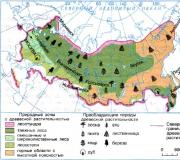Simplicity, goodness and truth are the building blocks of greatness. There is no greatness where there is no simplicity
It would seem that in this campaign of flight of the French, when they did everything they could to destroy themselves; when not a single movement of this crowd, starting from the turn onto the Kaluga road and until the flight of the commander from the army, made the slightest sense - it would seem that during this period of the campaign it is no longer possible for historians, who attribute the actions of the masses to the will of one person, to describe this retreat in their meaning. But no. Mountains of books have been written by historians about this campaign, and everywhere the orders of Napoleon and his profound plans are described - the maneuvers that led the army, and the brilliant orders of his marshals. The retreat from Maloyaroslavets when he is given the road to an abundant land and when that parallel road along which Kutuzov later pursued him is open to him, the unnecessary retreat along the ruined road is explained to us for various profound reasons. For the same profound reasons, his retreat from Smolensk to Orsha is described. Then his heroism at Krasny is described, where he allegedly prepares to take the battle and command himself, and walks with a birch stick and says: - J"ai assez fait l"Empereur, il est temps de faire le général, - and, despite this, immediately after this he runs on, leaving the scattered parts of the army behind to the mercy of fate. Then they describe to us the greatness of the soul of the marshals, especially Ney, the greatness of the soul, which consists in the fact that at night he made his way through the forest bypassing the Dnieper and, without banners and artillery and without nine-tenths of the army, ran to Orsha. And finally, the last departure of the great emperor from the heroic army is presented to us by historians as something great and ingenious. Even this last act of flight, in human language is called the last degree of meanness, which every child learns to be ashamed of, and this act in the language of historians receives justification. Then, when it is no longer possible to stretch such elastic threads of historical reasoning any further, when an action is already clearly contrary to what all humanity calls good and even justice, the saving concept of greatness appears among historians. Greatness seems to exclude the possibility of measuring good and bad. For the great there is no bad. There is no horror that can be blamed on someone who is great. - “C"est grand!" - say historians, and then there is no longer either good or bad, but there is “grand” and “not grand”. Grand is good, not grand is bad. Grand is a property, according to their concepts, of some special animals called heroes. And Napoleon, walking home in a warm fur coat from the dying not only of his comrades, but (in his opinion) of the people he brought here, feels que c"est grand, and his soul is at peace. “Du sublime (he sees something sublime in himself) au ridicule il n"y a qu"un pas,” he says. And the whole world has been repeating for fifty years: “Sublime! Grand! Napoleon le grand! Du sublime au ridicule il n"y a qu"un pas". And it will not occur to anyone that recognition of greatness, immeasurable by the measure of good and bad, is only recognition of one’s insignificance and immeasurable smallness. For us, with the measure of good and bad given to us by Christ, there is nothing immeasurable. And there is no greatness where there is no simplicity, goodness and truth.I've represented the emperor long enough; now it's time to be a general. “This is majestic!” ...majestic... “From the majestic to the ridiculous there is only one step...” “Majestic! Great! Napoleon the Great! It’s only a step from the majestic to the ridiculous.”
What is simplicity, truth, kindness? Is a person who has all these character traits omnipotent? These questions are often asked by people, but they are not easy to answer. Let's turn to the classics. Let her help you figure this out. The name of Lev Nikolaevich Tolstoy is familiar to us from early childhood. But then I read the novel “War and Peace”. This great work makes you look at the questions posed differently. How often was Tolstoy reproached for distorting the history of one thousand eight hundred and twelve, that he distorted characters Patriotic War. According to the great writer, history as science and history as art have differences. Art can penetrate into the most distant eras and convey the essence of past events and inner world people who participated in them. Indeed, history as a science focuses on the particulars and details of events, limiting itself only to their external description, and art history embraces and conveys the general course of events, while at the same time penetrating into their depth. This must be kept in mind when assessing historical events in the novel “War and Peace”.
Let's open the pages of this work. Salon of Anna Pavlovna Scherer. Here for the first time a sharp dispute about Napoleon arises. It begins with guests of a noble lady's salon. This dispute will end only in the epilogue of the novel.
For the author, not only was there nothing attractive about Napoleon, but, on the contrary, Tolstoy always considered him a man whose “mind and conscience were darkened,” and therefore all his actions “were too contrary to truth and goodness...”. Not statesman, able to read in the minds and souls of people, and a spoiled, capricious and narcissistic poser - this is how the Emperor of France appears in many scenes of the novel. So, having met the Russian ambassador, he “looked into Balashev’s face with his big eyes and immediately began to look past him.” Let us dwell a little on this detail and conclude that Napoleon was not interested in Balashev’s personality. It was clear that only what was happening in his soul was of interest to him. It seemed to him that everything in the world depended only on his will.
Maybe it’s too early to draw a conclusion from such a particular case as Napoleon’s inattention to the Russian ambassador? But this meeting was preceded by other episodes in which this emperor’s manner of “looking past” people also manifested itself. Let us remember the moment when the Polish lancers, in order to please Bonaparte, rush into the Viliya River. They were drowning, and Napoleon sat calmly on a log and did other things. Let us recall the scene of the emperor’s trip across the Austerlitz battlefield, where he showed complete indifference to the killed, wounded and dying.
The imaginary greatness of Napoleon is exposed with particular force in the scene depicting him on Poklonnaya Hill, from where he admired the marvelous panorama of Moscow. “Here it is, this capital; she lies at my feet, awaiting her fate... One word of mine, one movement of my hand, and this one died ancient capital...” So thought Napoleon, who waited in vain for a deputation of “boyars” with the keys to the majestic city spread out before his eyes. No. Moscow did not go to him “with a guilty head.”
Where is this greatness? It is where goodness and justice are, where the spirit of the people is. According to “popular thought,” Tolstoy created the image of Kutuzov. Of all historical figures, depicted in “War and Peace,” one of his writer calls a truly great man. The source that gave the commander the extraordinary power of insight into the meaning of the events that took place “lay in this popular feeling, which he carried within himself in all its purity and strength.”
According to L.N. Tolstoy, the decisive force of history is the people. And the main criterion for assessing a person, in his opinion, is the attitude towards the people. Tolstoy denied in history the role of individuals who put their own interests above those of the people. In his epic novel “War and Peace,” he contrasts Kutuzov, the commander people's war, and Napoleon - “the most insignificant instrument of history,” “a man with a darkened conscience.”
Kutuzov appears before us as a majestic commander, a true people's leader. He is not interested in either fame or wealth - he, together with Russian soldiers, fights for the freedom of his Motherland. With simplicity, kindness and sincerity, he managed to achieve boundless trust and love on the part of his army, they listen to him, believe him and unquestioningly obey: “by an irresistible mysterious connection that maintains the same mood throughout the army, called the spirit of the army and constituting the main nerve of war , Kutuzov’s words, his order for battle for tomorrow, were transmitted simultaneously to all ends of the army.”
This is an extremely experienced and skillful commander, who, with wise orders, helps soldiers to believe in themselves, their strength, and strengthens the military spirit: “With long military experience, he knew and with his senile mind understood that it is impossible for one person to lead hundreds of thousands of people fighting death, and he knew “that the fate of the battle is decided not by the orders of the commander-in-chief, not by the place where the troops stand, not by the number of guns and killed people, but by that elusive force called the spirit of the army, and he monitored this force and led it, as far as it was in his power.” .
Kutuzov is a person like everyone else, and he treats the captured French with sympathy and humanity: “They are worse than the last beggars. While they were strong, we did not feel sorry for ourselves, but now we can feel sorry for them. They are people too.” And he felt the same sympathy for the prisoners, according to Tolstoy, in all the glances directed at him. There is nothing ostentatious, nothing heroic in Kutuzov, he is close to the soldiers who feel in him loved one. Outwardly it is ordinary an old man, fat and overweight, but it is precisely in these details that the “simplicity, kindness and truth” of the great commander shines through.
Napoleon is the complete opposite of Kutuzov. This is a man possessed by delusions of grandeur, commander of an army of marauders, robbers and murderers who are overwhelmed by the thirst for profit and enrichment. According to the author, “it was a crowd of marauders, each of whom was carrying and carrying a bunch of things that seemed valuable and necessary to him. The goal of each of these people when leaving Moscow. consisted. It’s about keeping what you’ve acquired.” Napoleon is characterized by hypocrisy, falsehood, posing, self-admiration; he is indifferent to the fate of people, because he is only interested in fame and money.
However, the most disgusting and repulsive scene is the scene of the shameful flight of the “great emperor from the heroic army.” The author calls this betrayal towards the French army “the last degree of meanness.” Napoleon’s appearance is also described in satirical colors: “fat shoulders and thighs, a round belly, colorless eyes repel this man from us even more.” By denying the greatness of Napoleon, Tolstoy thereby denies war, showing the inhumanity of conquest for the sake of glory.
(No ratings yet)
Essays on topics:
- The play “At the Bottom” is an allegory about a man for whom truth and life are polar opposites. The truth of man and the truth about...
- In the play “At the Lower Depths,” M. Gorky strives not only to depict a terrible reality to draw attention to the plight of the disadvantaged...
- A. S. Pushkin does not just describe painting of Doe; he reveals his understanding of the general's personality and fate. Barclay was one of...
- The image of Kutuzov and Napoleon in the novel “War and Peace”” Kutuzov is a true patriot of his Motherland, a wise man, a hero who is close...
One of the brightest works of Russian prose is the epic novel “War and Peace.” Through dramatic personal stories heroes, pictures of battles and landscape sketches the author depicted one of the most significant civil events in history Russian state – Patriotic War 1812, proclaiming the idea that “there is no greatness where there is no simplicity, goodness and truth.”
Historical figures in the novel's character system
To create a work reflecting heroic impulses, the revival of the patriotic spirit and national unity, courage and bravery ordinary people, behavior noble society, the author used a complex and extensive system of characters. The heroes of the 4-volume epic novel were both real historical figures and heroes created by the author’s imagination. Compositional, character and ideological plan the author is realized through the technique of opposition. Through the prism of using the antithesis technique, the author portrays the two main representatives of opposing military camps - Napoleon and Kutuzov.
The ideological content of the images of Napoleon and Kutuzov
When creating these images, the author endows them with features that symbolize certain ideological views. Napoleon, who for a long time was the idol of the highest Russian society and representatives national army, L.N. Tolstoy depicts the degradation of personality using the technique. Bonaparte in the work “War and Peace” symbolizes an anti-people, inhumane, inhumane attitude. In the novel War and Peace, he is depicted as a selfish military leader, ready to do anything to satisfy his own ambitions.
He is contrasted with the commander Russian army Mikhail Kutuzov, who is the personification of the Russian people, their invincible spirit. The image of Mikhail Kutuzov is a symbol of the people's opposition to the conqueror of the Fatherland. In the novel, when the need arose to defend his native land not for life but for death, Mikhail Kutuzov proved himself to be the most experienced, far-sighted and true patriot.
Contrasting selfishness with the national spirit
The tsar’s reluctance to see Kutuzov as the commander of the Russian army, which Tolstoy emphasized, in Once again emphasizes Kutuzov’s closeness to the people. The most striking is the thought of Andrei Bolkonsky, who explained to Pierre Bezukhov why the Russian army is led by this particular man. Prince Andrei believed that when native land it’s bad, only a true native of the people who loves their native land and has a heart for everyone who lives on it can protect it. Kutuzov showed great military wisdom when he made the risky decision to retreat and surrender Moscow to the enemy. Only true patriot and a wise commander, able to think globally in the interests of the entire country, took the risk of giving up one of the main cities in exchange for the freedom of the country and the lives of soldiers.
This decision of Kutuzov and the behavior of the Russian army made Napoleon rejoice, enjoying his greatness and invincibility. His selfish and self-righteous thoughts regarding Moscow and Russia are most clearly reflected in the episode on Poklonnaya Hill. Admiring the panorama of Moscow, Napoleon was confident in his victory and the subjugation of the Russian people, but did not take into account the high patriotic feelings of the local population, who were ready to burn and destroy their houses and property, but not to surrender to him with a “guilty head.”
Attitude towards soldiers
Such closeness of the commander to his subordinates, the ability to feel every fighter, ensured the success of Kutuzov’s ideas and actions, which brought victory to Russia. He put Moscow and the army, which could defend the rest of Russia, on the scales, and made a decision in favor of the Russian people. Kutuzov showed love for the people and high human humanity after the end of the war, refusing the post of commander-in-chief. He believed that shedding the blood of soldiers outside the Motherland was pointless when the native land and the Russian people were no longer threatened by the enemy.
Unlike his Russian opponent, Napoleon shows complete coldness and indifference to the soldiers of his own army. Lives and personalities are not important to him. Bonaparte was only interested in what ensured his success. He showed complete indifference to the wounded and dying of his army. This explains his attitude towards the people who followed his idea. For Napoleon, soldiers are just one of the military tools to satisfy his ambitions.
conclusions
In the novel War and Peace, two commanders are contrasted. Napoleon and Kutuzov are distinguished in the novel different essence and the purpose of life. By contrasting these characters, Tolstoy reveals one of the main ideas of the work - connection with the people and the unity of the Russian spirit. The commander who is guided only by ambition and the desire to rule will never be able to lead the people and win true victories - such is main idea my essay on the topic: “There is no greatness where there is no simplicity, goodness and truth.”
Work test
One of the brightest works of Russian prose is the epic novel “War and Peace.” Through dramatic personal stories of heroes, pictures of military battles and landscape sketches, the author depicted one of the most significant civil events in the history of the Russian state - the Patriotic War of 1812, proclaiming the idea that “there is no greatness where there is no simplicity, goodness and truth.”
Historical figures in the novel's character system
To create a work reflecting heroic impulses, the revival of the patriotic spirit and national unity, the courage and bravery of ordinary people, and the behavior of noble society, the author used a complex and branched system of characters. The heroes of the 4-volume epic novel were both real historical figures and heroes created by the author’s imagination. The author's compositional, character and ideological plans are realized through the technique of opposition. Through the prism of using the antithesis technique, the author portrays the two main representatives of opposing military camps - Napoleon and Kutuzov.
The ideological content of the images of Napoleon and Kutuzov
When creating these images, the author endows them with features that symbolize certain ideological views. Napoleon, who for a long time was the idol of high Russian society and representatives of the Russian army, L.N. Tolstoy depicts the degradation of personality using the technique. Bonaparte in the work “War and Peace” symbolizes an anti-people, inhumane, inhumane attitude. In the novel War and Peace, he is depicted as a selfish military leader, ready to do anything to satisfy his own ambitions.
He is contrasted with the commander of the Russian army, Mikhail Kutuzov, who is the personification of the Russian people, their invincible spirit. The image of Mikhail Kutuzov is a symbol of the people's opposition to the conqueror of the Fatherland. In the novel, when the need arose to defend his native land not for life but for death, Mikhail Kutuzov proved himself to be the most experienced, far-sighted and true patriot.
Contrasting selfishness with the national spirit
The tsar’s reluctance to see Kutuzov as the commander of the Russian army, which Tolstoy emphasized, once again emphasizes Kutuzov’s closeness to the people. The most striking is the thought of Andrei Bolkonsky, who explained to Pierre Bezukhov why the Russian army is led by this particular man. Prince Andrei believed that when his native land is bad, only a true native of the people who loves his native land and has a heart for everyone who lives on it can protect it. Kutuzov showed great military wisdom when he made the risky decision to retreat and surrender Moscow to the enemy. Only a true patriot and wise commander, who knows how to think globally in the interests of the entire country, took the risk of giving up one of the main cities in exchange for the freedom of the country and the lives of soldiers.
This decision of Kutuzov and the behavior of the Russian army made Napoleon rejoice, enjoying his greatness and invincibility. His selfish and self-righteous thoughts regarding Moscow and Russia are most clearly reflected in the episode on Poklonnaya Hill. Admiring the panorama of Moscow, Napoleon was confident in his victory and the subjugation of the Russian people, but did not take into account the high patriotic feelings of the local population, who were ready to burn and destroy their houses and property, but not to surrender to him with a “guilty head.”
Attitude towards soldiers
Such closeness of the commander to his subordinates, the ability to feel every fighter, ensured the success of Kutuzov’s ideas and actions, which brought victory to Russia. He put Moscow and the army, which could defend the rest of Russia, on the scales, and made a decision in favor of the Russian people. Kutuzov showed love for the people and high human humanity after the end of the war, refusing the post of commander-in-chief. He believed that shedding the blood of soldiers outside the Motherland was pointless when the native land and the Russian people were no longer threatened by the enemy.
Unlike his Russian opponent, Napoleon shows complete coldness and indifference to the soldiers of his own army. Lives and personalities are not important to him. Bonaparte was only interested in what ensured his success. He showed complete indifference to the wounded and dying of his army. This explains his attitude towards the people who followed his idea. For Napoleon, soldiers are just one of the military tools to satisfy his ambitions.
conclusions
In the novel War and Peace, two commanders are contrasted. Napoleon and Kutuzov in the novel are distinguished by their different essence and purpose of life. By contrasting these characters, Tolstoy reveals one of the main ideas of the work - connection with the people and the unity of the Russian spirit. The commander who is guided only by ambition and the desire to rule will never be able to lead the people and win true victories - this is the main idea of my essay on the topic: “There is no greatness where there is no simplicity, goodness and truth.”
Work test




